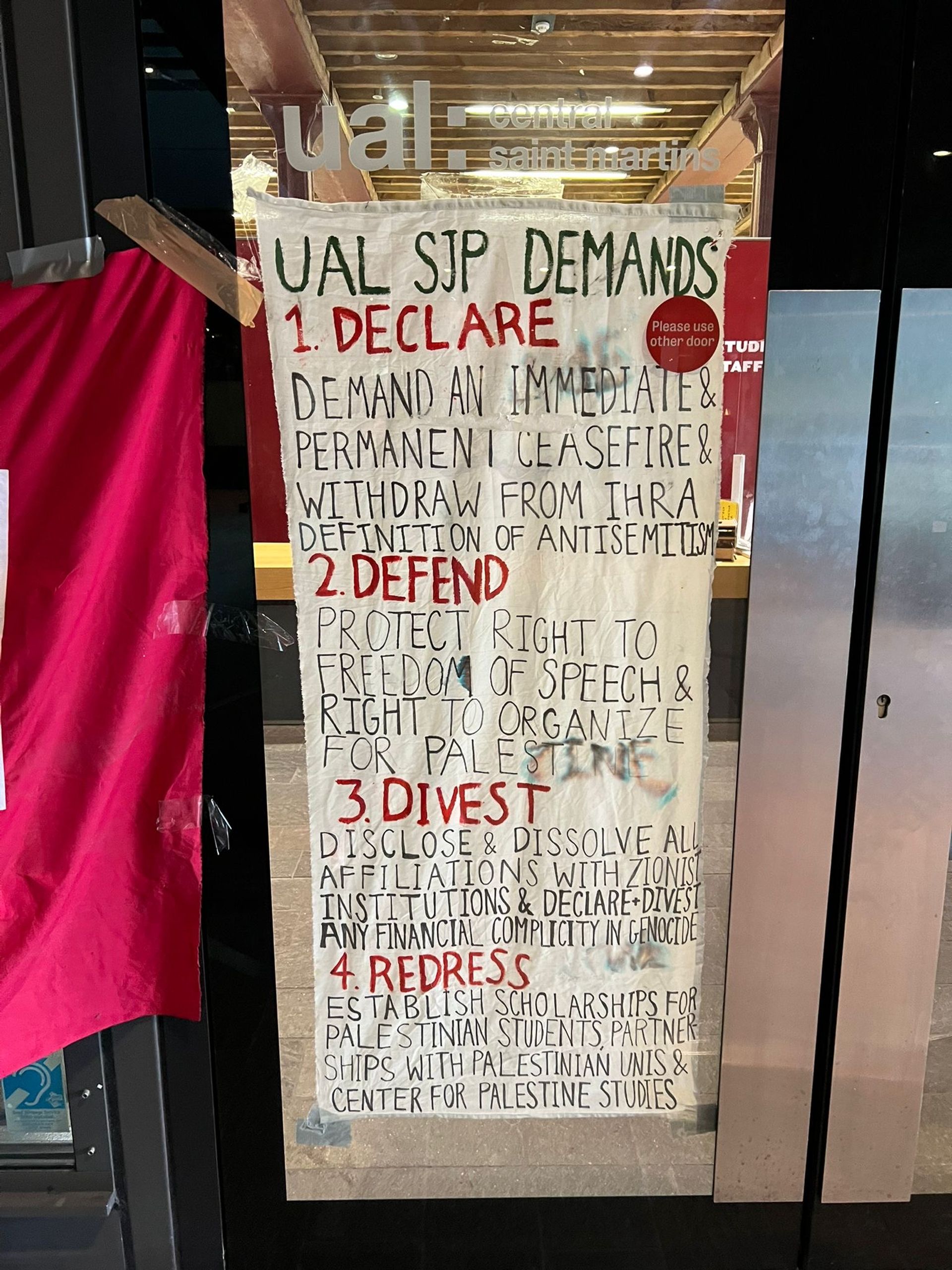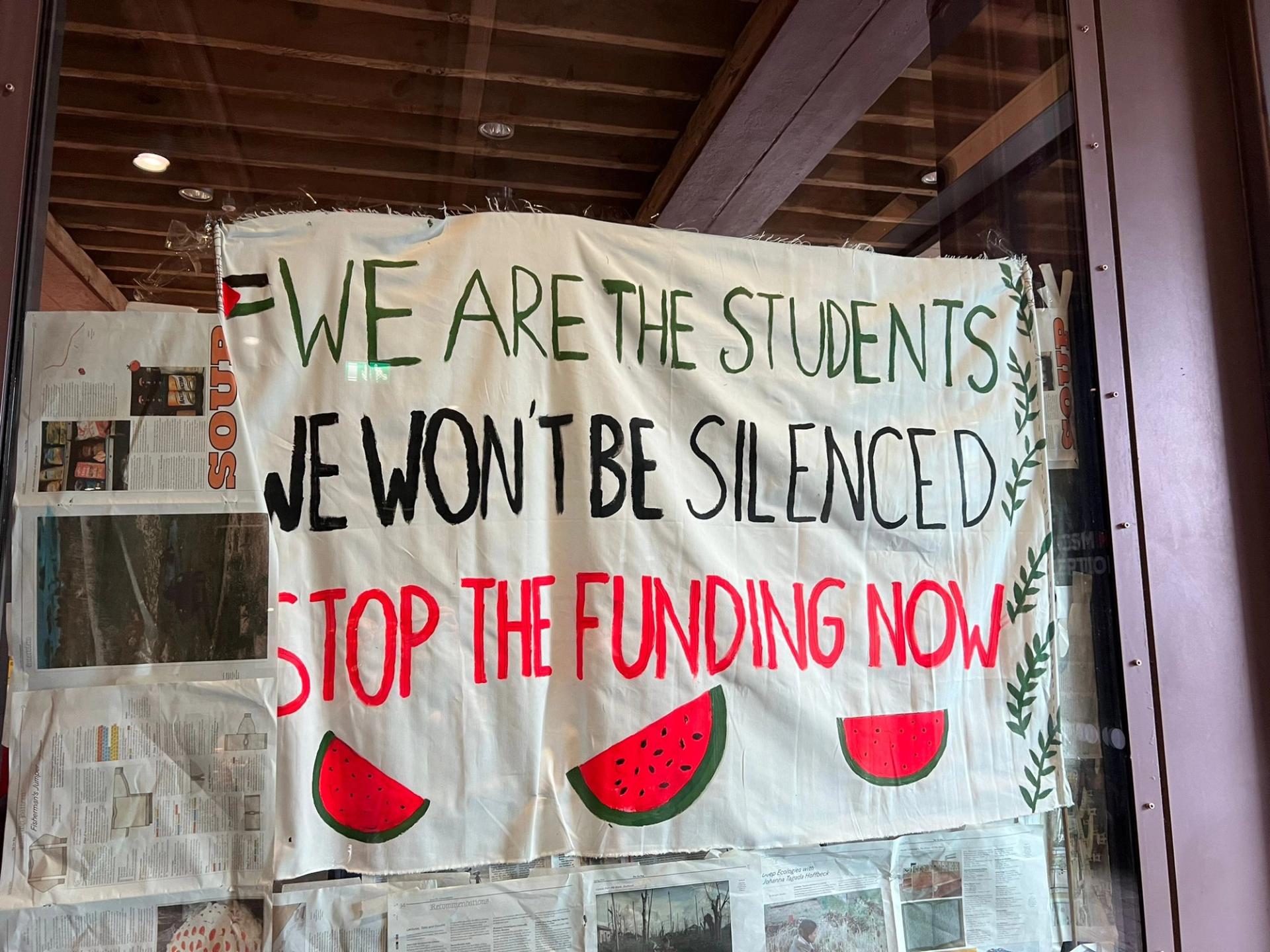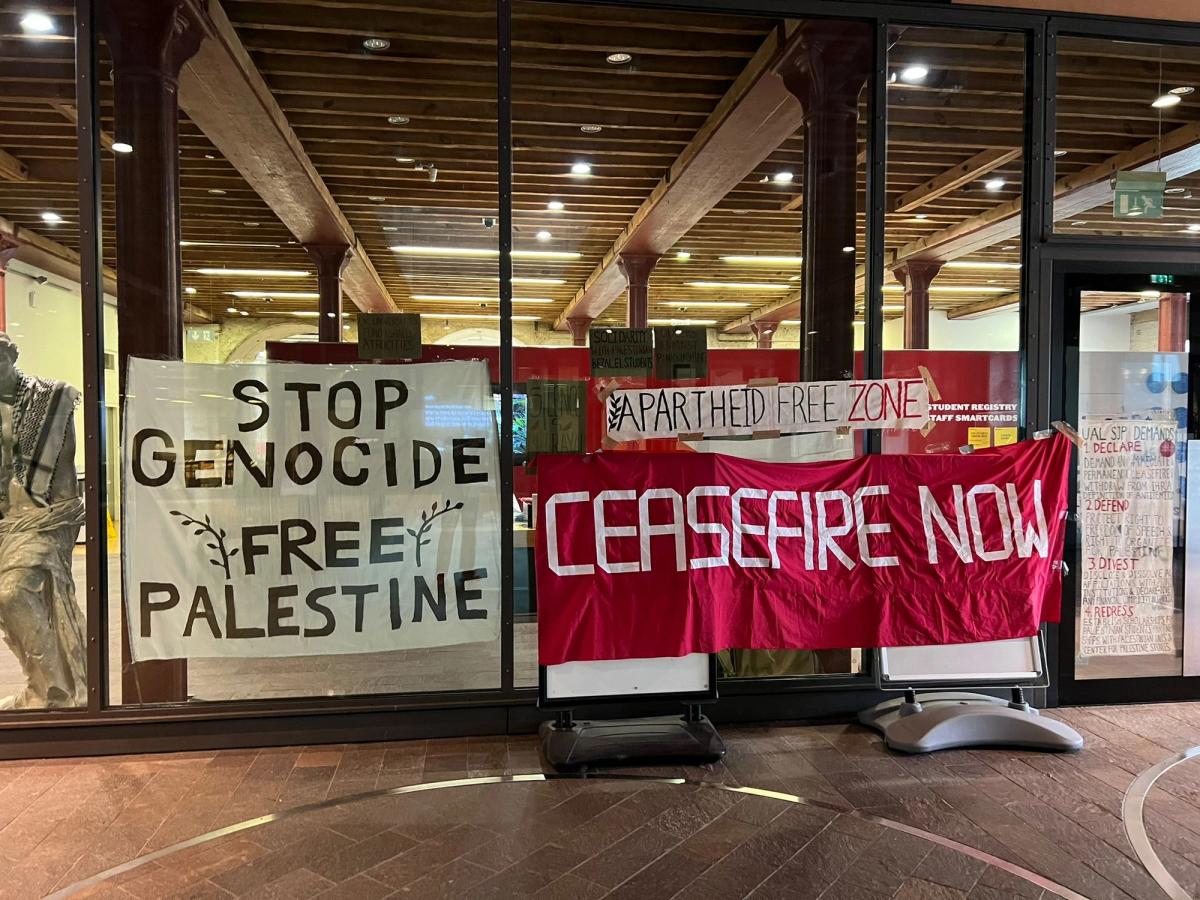University of the Arts London (UAL) students have escalated their protests against the university’s stance on the war in Gaza, taking over the reception area at Central Saint Martins (CSM), one of the world's leading art colleges.
“There is no action left other than to occupy a space,” says Samara Khafaji, a student at UAL and a member of Students for Justice in Palestine (SJP), the group leading the demonstration.
“The reason it has escalated to an occupation is because there have been seven months of sit-ins, seven months of protests, seven months of marching, teachings, petitions, list of demands. We have tried every avenue we possibly can to try to get our demands met,” Khafaji says.
A meeting this week between James Purnell, the university's vice-chancellor, and the students appears to have been a tipping point. “It was very clear that we were not going to receive a positive response to our demands from the university,” another SJP member at UAL, who wishes to remain anonymous.
The students’ demands include that the university release a statement calling for an immediate ceasefire; to “withdraw from the IHRA [International Holocaust Remembrance Alliance] definition of antisemitism; protect the right for free speech and the right to organise for Palestine; disclose and dissolve all affiliations with Zionist institutions; declare and divest from any financial complicity in genocide; and establish scholarships for Palestinian students and partnerships with Palestinian universities and also a centre for Palestine studies”.

A banner displaying the UAL SJP protestors’ demands
Photo: Rahul Patel
The students are also demanding Purnell’s resignation, as he is increasingly being viewed by them as an obstacle in reaching a positive outcome to their demands. Purnell is a former member of parliament and was the chair of Labour Friends of Israel between 2002 and 2004.
“All of us have such a good relationship with our educators, with our teachers, and it is very clear that there is a difference between speaking with an educator and speaking to someone like James Purnell, who is a politician,” the anonymous SJP member says.
The protestors say they have had overwhelming support from students and staff at UAL, including Jewish students and teachers. In January, more than 800 staff, students and alumni of UAL signed an open letter expressing their solidarity with Palestinians and pledging to "support and rebuild education and cultural institutions in Gaza and across Palestine".
“The university has not made any statements on Gaza. They say they are staying neutral. We have said there is no neutral position on genocide,” Rahul Patel, the joint branch secretary of the University and College Union (UCU) and a staff member at UAL tells The Art Newspaper.

Divestment is one of the protestors’ key demands
Photo: Rahul Patel
Patel and the students argue that while UAL swiftly issued a statement condemning Russia's invasion of Ukraine, declaring that it “deplore[s] and condemn[s] the war in Ukraine”, it is now showing bias by not making any statements on Gaza.
Yesterday, students at the Slade School of Fine Art, part of University College London, released a statement on Instagram expressing their solidarity with the SJP ahead of the private view of their degree show. A five-week occupation at Goldsmiths, part of the University of London, meanwhile, ended on 15 May after the university agreed to protestors’ demands, including providing scholarships to Palestinians and reconsidering its definition of antisemitism.
In the meantime, the occupation of the CSM reception area continues. The student protesters say they plan is to stay in the space until the university provides a meaningful response to their demands.
A spokesperson for UAL says: “UAL passionately believe in upholding free speech within the law. We will continue to support the students right to peaceful assembly. Our first priority is the safety and wellbeing of our community. We understand that many people have strongly held and often opposing views. We want to create a culture where everyone feels safe to express those opinions, whilst also recognising others' rights to be free from harm.”
The latest demonstrations follow a string of campus protests in the US, at which there have been mass arrests, and come seven months into the war in Gaza. According to the United Nations, Israeli attacks have killed around 35,000 Palestinians—the majority of them women and children—since Hamas’s 7 October terrorist attacks on Israel, in which around 1,200 people were killed and 253 people were taken hostage.


